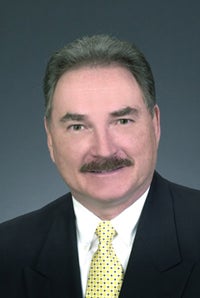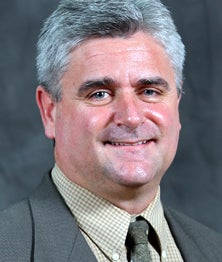FHSAA tells reporters it's time to take a stand a day after the Biogenesis scandal.
The Alex Rodriguez saga and Biogenesis scandal aren't just professional sports stories anymore.
They've hit the ranks of the high school athlete as well.
The Florida High School Athletic Association told reporters on a conference call Tuesday that it will push for tough policies against the use of steroids.
It comes on the heels not only of Black Monday — the day 13 Major League Baseball players, including Rodriguez, were suspended for connections with the Biogenesis clinic — but a week after a report connected high school athletes to the clinic as well.
"We must draw a line in the sand against performance-enhancing drugs," FHSAA Executive Director Roger Dearing said.
Dearing called steroid use among high school kids "the elephant in the room," and that officials "may have not have been as vigilant as we should have been."
But the
Miami Herald last week unearthed two current high school seniors and five athletes now in college from South Florida high schools who were clients of the Biogenesis clinic.
Dearing said school districts can't tolerate coaches who allow steroid use or look the other way when suspected users take the field. He encouraged tougher district policies to safeguard "fair play and saving students' lives."
Drug testing has been addressed throughout the country, but largely deemed too expensive in a mass majority of states. There are close to 300,000 student-athletes in Florida and with a comprehensive test costing more than $100 each, the state can't possibly come up with $30 million.
According to the
Palm Beach Post, the state legislature allocated $100,000 for statewide tests 10 years ago. Dearing encouraged corporations to help finance such testing.

Roger Dearing
Courtesy photo
"There are enough people involved (in high school sports) to provide funds for it," Dearing said. "There are resources available. It's the responsibility of communities to make sure their schools are drug free."
According to a
New York Times report earlier this year, at least three states — Texas, New Jersey and Illinois — partake in drug testing through a company called Drug Free Sport. But the combined bill for those three states has been in the hundreds of thousands of dollars.
One of the biggest proponents of testing were the parents of a 17-year-old baseball player from Plano (Texas), who committed suicide in 2003 following a bought with steroid use. The boy's father Don Hooton told the Times that a decade later the drug-testing programs in place haven't proved to be a deterrent.
"We have a real problem here," Hooton told the newspaper about the use of steroids among high school athletes. "But we're not getting at it."
Perhaps that's because other major issues and tragedies have popped up with greater regulator among high school athletes over the last decade, such as concussions, head trauma and heat stroke.
But clearly just a decade ago, similar to the Biogenesis clinic, BALCO and steroids were at the forefront of every educators' mind in California. The California Interscholastic Federation passed less strict but firm steroid legislation, which mandated coach and parent education and prohibited athletic departments from accepting sponsorship from performance-enhancing dietary supplements.
The theme then from now-CIF Executive Director Roger Blake was "It's time to educate our educators."
The voices from Florida Tuesday were much firmer.
Said Dearing: "Performance-enhancing drugs undermine every aspect of this goal, and so it is imperative that our student-athletes adhere to a zero-tolerance policy toward these inherently unfair and dangerous substances."

Ron Nocetti
Courtesy photo
Ron Nocetti, the CIF Associate Executive Director, said Tuesday that it's not just the obvious dangerous drugs that are necessarily at the forefront now. There are new substances that educators, parents and coaches need to be aware of.
"It's a constant education about the dangers of what's out there," Nocetti said Tuesday. "It's not just illegal substances but legal ones as well."
Rather than good nutrition or proper sleep, prep athletes today are turning to energy drinks mixed with soda, for instance. "There's a lot to stay on top of," he said.
Nocetti said a clear and simple way to stay a step ahead of the drug and safety issues for prep athletes is to go to
NFHSlearn.com and take courses free of charge. That goes for both coach and parent.
"The best way for all of us to combat everything is to communicate and educate," Nocetti said.
That said, Nocetti said there will always be people out to prey on kids and parents who are looking for an edge and the ever-elusive college scholarship.
"The best friend of any prep athlete - besides their own parent of course - is the high school coach, the high school athletic director or principal," Nocetti said. "I firmly believe that."